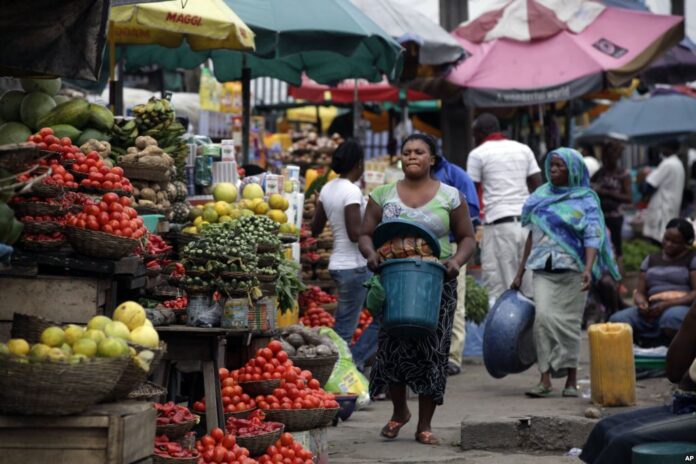Benin, Nov. 28, 2023: Operators of Micro Small and Medium Scale Enterprises (MSMEs) as well as consumers in Benin, the Edo capital, are lamenting the low purchasing power caused by the increasing inflation rate and low purchasing power.
Some of MSMEs operators and consumers on Monday, in Benin, decried the country’s high inflation rate noting that it has increased cost of living just as purchasing power remains stagnant.
Purchasing power is the value of a currency expressed in terms of the number of goods or services that one unit of money can buy,
While cost of living is the amount of money needed to cover basic expenses such as housing, food, and healthcare in a certain place and time period.
According to Mrs Tina Eromosele, a Patent Medicine shop owner in Benin, said people suffering from minor illnesses now prefer to use herbal solutions than buy orthodox medicines due to high prices.
“Business is no longer lucrative as before, the prices of medicines and consumables have skyrocketed,
“A sachet of Paracetamol, that was sold for between N50 to N70 last year now sells for between N150 to N200. A sachet of antibiotics drug that be was sold for N450 last year now sells from between N600 to N900.
“You cannot make much profit when prices are very high because consumers are not ready to buy goods when prices are high only when they are essential commodities and they do not have substitutes”.
Similarly, Mrs Favour Iyobosa, a small scale fashion designer lamented that the prices of fabrics and tailoring accessories were skyrocketing on a weekly basis.
“A yard of satin fabric that I bought for N600 two weeks ago now goes for N900. The situation is alarming and this is affecting the amount of sewing items we can buy.
“A small roll of sewing thread is about N100, something we used to buy for N50 a year ago. The painful thing is that customers are not ready to bear the price increment.
“They prefer to take back their fabric home and look for a similar fabric to wear for the occasion they wanted to make the new fabric for.
“I no longer come to my shop everyday because patronage is low. I don’t want to be wasting money on transportation fare that is already too high to go to my shop everyday”, she said.
On her part, A mother of three and a trader, Mrs Chioma Osas, appealed to the government to expedite actions in rolling out palliatives to the masses to cushion the effect of the fuel subsidy removal.
“I used to buy food stuff on a monthly basis for my children for about N15,000. Now, N25,000 cannot buy the same items I was using N15,000 to buy one year ago.
“School fees, house rent, medical bills, transportation fares, feeding have all gone up. The masses are suffering, small businesses are folding up and people are not buying plenty things as before”, she lamented
Mr Noma Iguisi, Edo Chairman, National Association of Small Scale Industrialists, urged the government to prioritize local production to reduce skyrocketing prices of goods and services.
“The government should provide incentives for the manufacturing sector, the promised grants for MSMEs should be rolled out. This will help reduce high cost of production.
“The subsidy removed from fuel can be used to subsides food items from the farms so that prices do not get going up”, he recommended




